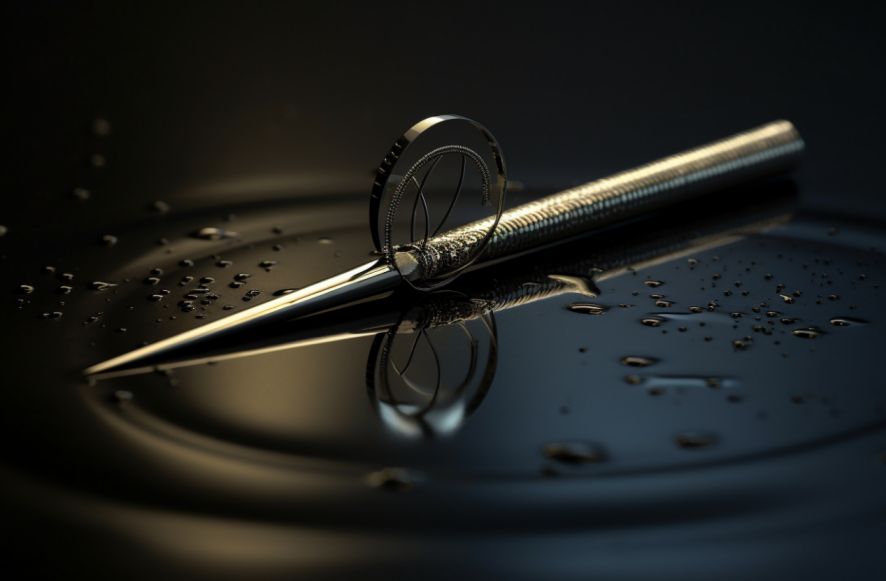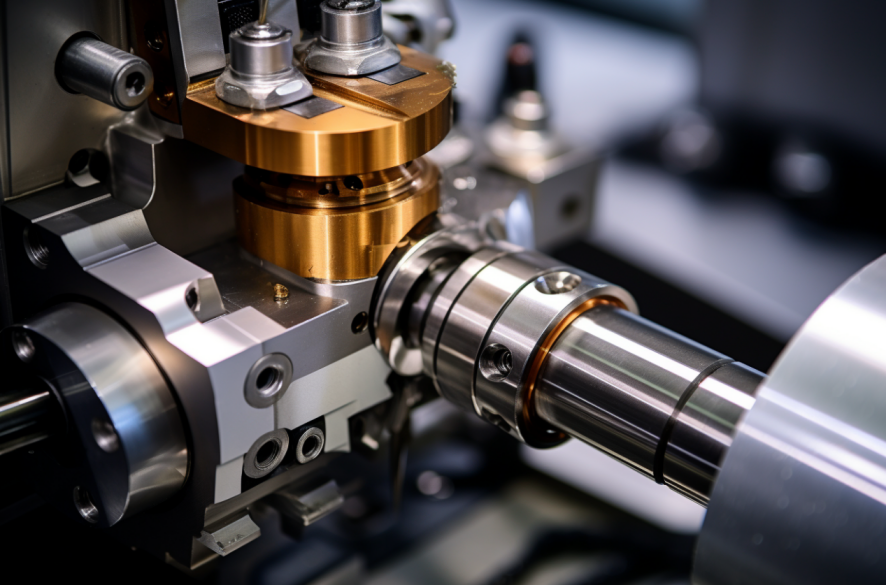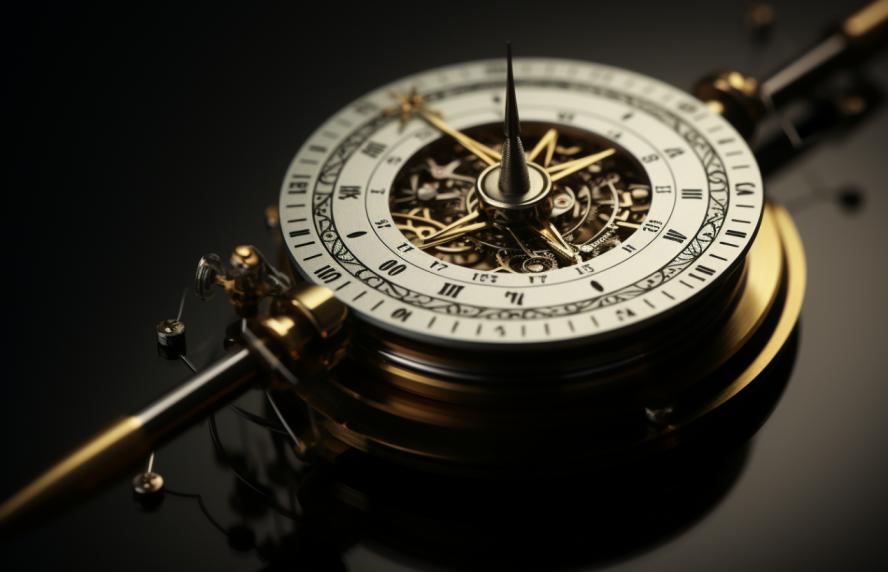Blog
We regularly update articles related to the prototyping and manufacturing industry. You’re welcome to check our previous blogs and subscribe to our newsletter.
Precision Needle Machining: Enhancing Industries in 2024
Precision needles have evolved beyond their traditional roles, finding integral positions in modern applications across medical and electronics sectors. These needles, once primarily associated with medical devices, now serve crucial functions in high-performance aerospace components and intricate electronic assemblies. Their versatility and precision are transforming how industries approach manufacturing challenges.

Trends in Precision Needle Applications
The demand for precision needles continues to surge across diverse industries. In medicine, they are pivotal in minimally invasive surgical tools, enabling surgeons to perform intricate procedures with minimal trauma to patients. Aerospace engineers rely on precision needles for their accuracy in controlling fluid flows and maintaining structural integrity in critical components. Furthermore, in electronics, these needles are essential for precise connections in circuit boards and delicate components, ensuring reliable performance in increasingly miniaturized devices.
Precision needle technology is advancing rapidly, driven by innovations in materials and manufacturing techniques. As a leader in precision needle machining, Louis Machine is at the forefront of these advances.
Louis Machine: Pioneering Precision Needle Machining
Louis Machine sets itself apart through a combination of cutting-edge technology and a deep understanding of material sciences. Specializing in CNC machining, micro-milling, and laser cutting, Louis Machine ensures that each needle meets exacting specifications with impeccable precision and surface finish. Their commitment to quality and innovation has made them a trusted partner across industries.
Louis Machine’s expertise extends beyond manufacturing capabilities. They collaborate closely with clients to understand their unique requirements and challenges. This collaborative approach allows Louis Machine to offer tailored solutions that optimize performance and efficiency, meeting the rigorous demands of every application.
Customization Options for Precision Needle Machining
Customization is key to maximizing the utility of precision needle machining. Louis Machine offers a range of customization options, from material selection to design modifications. Whether clients require specific alloy compositions for enhanced durability or intricate geometries for specialized applications, Louis Machine adapts their machining processes to deliver optimal results.
By customizing precision needle machining services, Louis Machine ensures that each needle performs reliably within its intended environment. This approach not only enhances product performance but also contributes to cost-effectiveness by minimizing material waste and optimizing manufacturing efficiency.

Louis Machine’s dedication to customization is underscored by their comprehensive understanding of industry standards and regulatory requirements. They adhere strictly to quality control protocols, ensuring that each precision needle meets or exceeds industry benchmarks for safety, reliability, and performance.
The Impact of Precision Needle Machining Across Industries
The versatility of precision needle machining extends its impact across multiple sectors, each benefiting from its unique capabilities and applications. Medical advancements, facilitated by precision needles, have revolutionized surgical procedures by enabling minimally invasive techniques that reduce patient recovery times and surgical risks.
In aerospace, precision needles contribute to the development of high-performance components that withstand extreme conditions and optimize fuel efficiency. Their role in fuel injection systems and hydraulic controls ensures reliable operation in demanding environments, enhancing overall aircraft performance and safety.
Electronics manufacturing relies on precision needles for intricate tasks such as semiconductor testing and micro-soldering. These needles facilitate precise deposition of conductive materials and ensure consistent electrical connections, vital for the reliability and functionality of electronic devices.
Materials and Processes in Precision Needle Machining
Precision needle machining involves a variety of materials carefully selected to meet specific performance criteria across industries. Louis Machine employs advanced manufacturing processes to ensure these materials are transformed into precision components that meet exacting standards.
Diverse Range of Materials
Precision needles are crafted from a diverse array of materials tailored to their intended applications. Stainless steels, known for their corrosion resistance and strength, are commonly used in medical instruments and surgical tools where durability and biocompatibility are critical. Titanium alloys offer a high strength-to-weight ratio, making them ideal for aerospace components requiring lightweight yet robust solutions. Specialized polymers, such as PEEK (polyetheretherketone), are valued for their biocompatibility and resistance to chemical and thermal degradation, making them suitable for medical implants and electronic applications.
Louis Machine’s expertise extends to machining these materials with precision and consistency. Techniques like CNC turning allow for intricate shaping of metals and polymers, ensuring each needle meets tight tolerances and surface finish requirements. Micro-milling techniques further refine the intricate geometries needed in medical and electronic needles, while laser cutting provides clean, precise cuts necessary for achieving optimal performance.
Quality Assurance and Compliance
Ensuring the highest levels of quality and compliance is paramount in precision needle machining. Louis Machine adheres rigorously to ISO certifications and industry-specific guidelines to guarantee the reliability and safety of their products. Quality control processes are integrated throughout every stage of manufacturing, from material sourcing to final inspection.

Louis Machine’s commitment to quality assurance begins with meticulous inspection of incoming materials. Each batch undergoes rigorous testing to verify its mechanical properties and chemical composition, ensuring it meets specified requirements. During machining, real-time monitoring and feedback systems maintain process stability, minimizing variability and ensuring consistent part-to-part quality.
Final inspection procedures involve comprehensive dimensional checks and surface quality assessments to verify adherence to customer specifications and regulatory standards. Louis Machine’s dedication to quality assurance not only enhances product reliability but also instills confidence in clients relying on precision needles for critical applications in healthcare, aerospace, and electronics.
Future Outlook for Precision Needle Machining
The future of precision needle machining is shaped by ongoing advancements in materials science, manufacturing techniques, and application requirements. Louis Machine is at the forefront of driving these innovations, continuously exploring new materials and refining their machining processes to deliver cutting-edge solutions.
Advancements in Materials
Future materials for precision needles will likely emphasize enhanced properties such as biocompatibility, thermal stability, and mechanical strength. Innovations in alloy compositions and polymer blends will expand the capabilities of precision needles, enabling them to perform in more demanding environments and applications.
Louis Machine’s proactive approach includes collaborating with material suppliers and research institutions to stay ahead of these developments. By integrating new materials into their manufacturing processes, they can offer clients improved performance and reliability in their precision needle solutions.
Manufacturing Techniques
The evolution of manufacturing techniques will further optimize precision needle production. Advancements in additive manufacturing (3D printing) may offer new avenues for designing complex geometries and integrating multifunctional features into precision needles. This flexibility can lead to customized solutions that enhance performance while reducing production costs and lead times.
Louis Machine invests in technology and expertise to leverage these advancements, ensuring they remain agile and responsive to changing market demands. By adopting state-of-the-art manufacturing techniques, they enhance their ability to deliver innovative solutions that exceed customer expectations.
Applications and Industry Partnerships
The future of precision needle machining will see expanded applications across a broader spectrum of industries. From medical devices and aerospace components to telecommunications and renewable energy sectors, precision needles will play integral roles in advancing technology and innovation.
Louis Machine’s commitment to partnering with industries drives their efforts to develop specialized solutions tailored to specific application needs. By collaborating closely with clients and understanding their unique challenges, Louis Machine can innovate and adapt their precision needle offerings to meet evolving industry requirements effectively.
Conclusion
Precision needle machining has emerged as a cornerstone of modern manufacturing, enabling industries to achieve unparalleled levels of precision and reliability. Louis Machine’s dedication to innovation, coupled with their commitment to customization and quality, positions them as a preferred partner for businesses seeking precision needle solutions.
As industries continue to evolve and demand more sophisticated technologies, precision needle machining will play an increasingly vital role in shaping the future of manufacturing. Louis Machine stands ready to meet these challenges, empowering their clients to innovate and excel in their respective fields.





